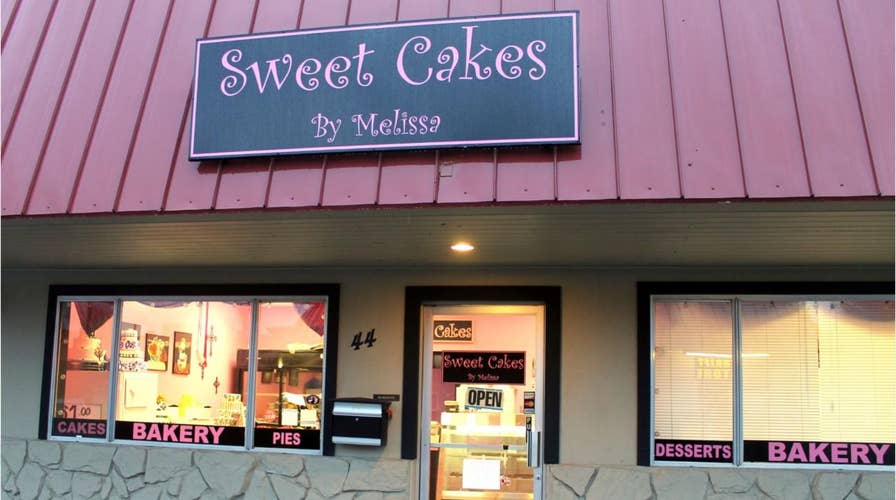Supreme Court tosses ruling against bakers who refused cake for gay couple
The U.S. Supreme Court threw out a ruling against two Oregon bakers who refused to make a wedding cake for a lesbian couple.
The Supreme Court on Monday threw out a ruling against two Oregon bakers who refused to bake a wedding cake for a lesbian couple.
The couple, Melissa and Aaron Klein, cited religious beliefs as their reason for not providing services for a gay wedding. This touched off the latest in a series of such cases making headlines in recent years. During the court's last term, justices ruled in favor of a Colorado baker in a similar situation, stating that a state body demonstrated improper hostility toward the baker's religion in finding that he violated a state anti-discrimination law.
WASHINGTON SUPREME COURT RULES AGAINST FLORIST WHO REFUSED SERVICE FOR GAY COUPLE'S WEDDING
On Monday, the Supreme Court sent the Klein case back down to a lower court "for further consideration in light of" their Colorado decision.
The central disputes in the case -- which pits LGBT rights against religious freedom considerations -- have yet to be addressed by the Supreme Court.
A similar case involving Washington state florist Baronelle Stutzman previously was sent back so the state court could review its decision against Stutzman in light of the Colorado case. The Washington court upheld its decision, and the case is expected to go back before the Supreme Court once more.
CHRISTIAN BAKER SUED FOR DISCRIMINATION FOR A THIRD TIME
The Kleins' case arose when Rachel Bowman-Cryer went to them in January 2013 to see about a wedding cake. When Aaron Klein asked for information, including the name of the groom, she told him there was none. Klein then said the bakery does not make cakes for gay weddings, court documents said.
Bowman-Cryer's mother, who was with her, said Klein quoted the Bible when explaining his decision.
The Kleins had to pay a $135,000 judgment to the couple for discriminating against them in violation of a state public accommodations statute. They ended up closing down their bakery.
The couple is represented by First Liberty, who celebrated the Supreme Court's decision as a win.
"This is a victory for Aaron and Melissa Klein and for religious liberty for all Americans," First Liberty president Kelly Shackelford said in a statement. "The Constitution protects speech, popular or not, from condemnation by the government. The message from the Court is clear, government hostility toward religious Americans will not be tolerated."
The Associated Press contributed to this report.





